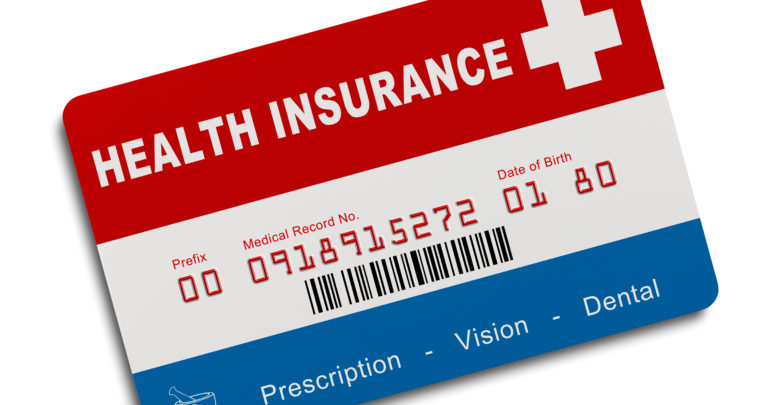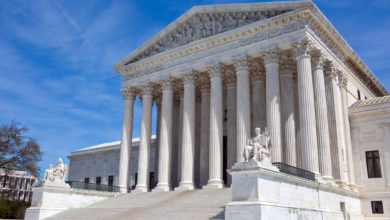Medicare For All Could Be Kryptonite For Dems in 2020

Two visions are competing for the hearts and minds of Democratic and independent voters in the run-up to the 2020 presidential election.
For the progressive left, it’s “Go Big Or Go Home.”
For everybody else, it’s “Whatever It Takes.”
Nothing screams “go big or go home” louder than Medicare for All.
Right now, “Medicare for All” has no fixed meaning. It’s a broad, aspirational concept, as much a campaign slogan as a policy. A number of Democratic presidential candidates claim to embrace the idea, but they all have different visions of it.
Bernie Sanders has introduced the bill that has attracted the most attention, the Medicare for All Act of 2019.
To call Sanders’ bill ambitious would be an understatement. It would radically alter the way health care is delivered to every American. Here are some of the highlights:
- The Act would create a single-payer national insurance plan, providing broad coverage for 13 categories of health care (hospital, ambulatory, primary and preventative, prescription drugs, mental health, laboratory and diagnostic, reproductive and maternity, pediatrics, oral health, rehabilitative, emergency, transportation for people with disabilities, and long-term home care) for all 387 million U.S. residents;
- It would eliminate virtually all cost sharing by patients. No premiums, no co-pays, no deductibles. It would be funded entirely by taxation;
- It would abolish the existing health insurance of every American, whether employer-provided or purchased on the individual market, by prohibiting health insurers and employers from offering any coverage that duplicates the benefits provided under the Act;
- It would abolish every existing governmental health care program, including Medicare, Medicaid, and the Children’s Health Insurance Program; and
- It would place severe penalties on any doctor who entered into a private health care contract with a patient, effectively terminating private arrangements between doctors and patients.
The intended benefits are breathtaking.
All 327 million Americans would be entitled to virtually unlimited free health care services. Nobody would be left behind or fall through the cracks.
“Go big” doesn’t get much bigger than that.
But the open questions are equally big, starting with what would be the real-world consequences of enacting Sanders’ bill into law?
Short answer: Nobody knows.
Longer answer: Everybody knows, but everybody “knows” something different.
How much would it cost?
Everybody has a theory. According to the New York Times, estimates of the total cost of health care under the Sanders bill would range from about $2.76 trillion per year (a decrease from the current total cost of health care), to $3.87 trillion per year (an increase in spending equal to the entire defense budget).
Sanders concedes that people will pay more in taxes to fund Medicare for All, but argues that “for the overwhelming majority of people” the tax increase will be more than offset by the elimination of premiums, co-pays, and deductibles.
Sanders’ certainty on this point is suspect. Whether or not he is right depends, of course, on whose estimate of the cost is correct. And the impact of the Act on the doctors and hospitals who provide the care. And on the willingness of Congress, now and over time, to increase taxes. And which taxpayers Congress will burden with those increased taxes. And how often people visit their doctors.
And a dozen other variables that are impossible to predict.
Another crucial question is how much the government would pay doctors and hospitals under the Act. The answer to that question is vitally important to every American, not just doctors.
Here’s how the Times put it: “Pay too little, and you risk hospital closings and unhappy health care providers. Pay too much, and the system will become far more expensive.”
Estimates vary, but most agree that doctors and hospitals, at least those who treat substantial numbers of patients with private insurance, would be paid less under the Act than they are currently paid. Would it be enough less to worsen the existing shortage of doctors, or to close hospitals that are already operating on paper-thin margins? Maybe. Maybe not.
The point is that the signal achievement of Medicare for All, unlimited free coverage for everybody, could lead to unwanted consequences if the program is not designed and executed to near perfection.
Delivery of health care in America is a highly complex, interrelated web of arrangements, an eco-system. Like Newton’s third law of motion, for every action there’s an equal and opposite reaction.
Whack one mole, and another pops up.
For instance, providing free health insurance to approximately 28 million people who currently don’t have coverage is an unambiguously good thing. And eliminating co-pays and deductibles for people who do have coverage will encourage them to go to the doctor’s office more often, undoubtedly resulting in better care.
But at what price?
How much strain would the flood of tens of millions of new patients, newly granted the right to unlimited free health care, place on a closed system that permits no options and depends entirely on congressional wisdom and competence for its sustainability?
Some observers believe that as utilization explodes, Americans will unavoidably be saddled with “long waiting lists, delays, and even denials of medical care.” And that new regulatory and paperwork burdens, along with payment rates that are lower than those currently paid by private insurers, would create a shortage of doctors and failing hospitals.
One common answer to those concerns is that other countries deliver single-payer health care that yields better results than the American mix of private and public insurance, and they do so at lower cost. If they can do it, the argument goes, so can we.
Bernie Sanders and others have cited Canada as an example. But it is doubtful that most Americans would put up with something like the Canadian system. The Washington Post cites findings published in Lancet, the British medical journal, that the Canadian system produces long wait times for non-emergency procedures and “abysmal health outcomes for Canada’s 1.7 million indigenous people.”
The British system arguably works somewhat better. There, the government not only finances care, but it also provides care through the National Health Service. Brits give the quality of care provided by the National Health Service high marks, but decreasing tax revenues have driven up waiting times, required rationing of drugs, and led to the forced postponement of tens of thousands of operations.
Are Americans going to be willing to trade their existing coverage for that?
Not likely. They are going to demand something better, and they are going to be every bit as focused on what they stand to lose as on what they stand to gain.
What this all means is that the proponents of Medicare for All need to be careful that, in an aspirational attempt to cure one set of problems, they don’t frighten voters into the arms of the Republicans because they fear that the Democratic cure is worse than the disease.
The lure of radical, rather than incremental change is understandably strong, especially to those who are rightly fed up with society’s inequities. But advocating an entirely new, radically different health care system with so many moving parts, so many known- and unknown-unknowns, and so many open questions is playing with fire.
Politically, Sanders-style Medicare for All could turn into kryptonite for Democrats, and pure gold for Republicans.
If Democratic nominees in 2020 run on a Medicare for All platform similar to the Sanders bill, Republicans will hang it around their necks like an anvil. It will be Exhibit A in Trump’s campaign to brand the 2020 election as a choice between the American Way and socialism. It doesn’t take much imagination to write the Republican ads: “This time they want to take away everybody’s insurance!”
Defending and proposing improvements to Obamacare, possibly including a Medicare-like public option for those who need it, would go down much easier with the American electorate. The sweet spot might be to use targeted Obamacare modifications to provide affordable coverage to those who don’t have it, without frightening off those who do.
Nobody has articulated that sweet spot better than Pete Buttigieg. In an interview with Rachel Maddow, Buttigieg called Medicare for All a “desired destination.” At the same time, Buttigieg observes, politicians who talk about Medicare for All “should have some account of the glide path to get there.” Making a version of Medicare available on the Obamacare exchanges for people to buy into as “an option” might be a good first step along that path, according to Buttigieg.
Buttigieg’s careful, but still aspirational, approach is less likely to turn off large portions of the 2020 electorate than Sanders’ all-or-nothing-all-at-once bill. The Medicare for All Act of 2019 would, after all, kill Obamacare just as dead as any Republican kill shot.
Democrats used Republican attempts to repeal Obamacare to great advantage in the 2018 mid-term elections. They can do it again, especially if the Republicans continue to be unable to come up with a realistic replacement.
The political calculus is straightforward:
Whichever party is viewed as threatening to take away people’s health insurance is going to be at a huge disadvantage in the 2020 election. Right now, that’s the Republicans. Medicare for All could turn that on its head. Medicare for All, at least the Sanders version, would take away the existing health care insurance of every American.
Yes, at least the Democrats, unlike the Republicans, will be proposing something specific to take its place. But voters may instinctively prefer the devil they know to the devil they don’t know.
Today, over 80% of Americans receive their health care coverage from employers, Medicare, or the military. And the great majority of them are happy with their coverage. According to Gallup, 80% of Americans rate the quality of their health care as excellent or good, and close to 70% rate their health insurance coverage as excellent or good.
Fighting against a tide of Americans who are just fine with their existing coverage might be a bold, heroic quest. But it’s a dangerous journey.
Under the Medicare for All Act of 2019, Democrats would have to convince every American who stands to lose his/her existing coverage that it will be replaced with something better.
They will be saying “trust me.”
Good luck with that.




